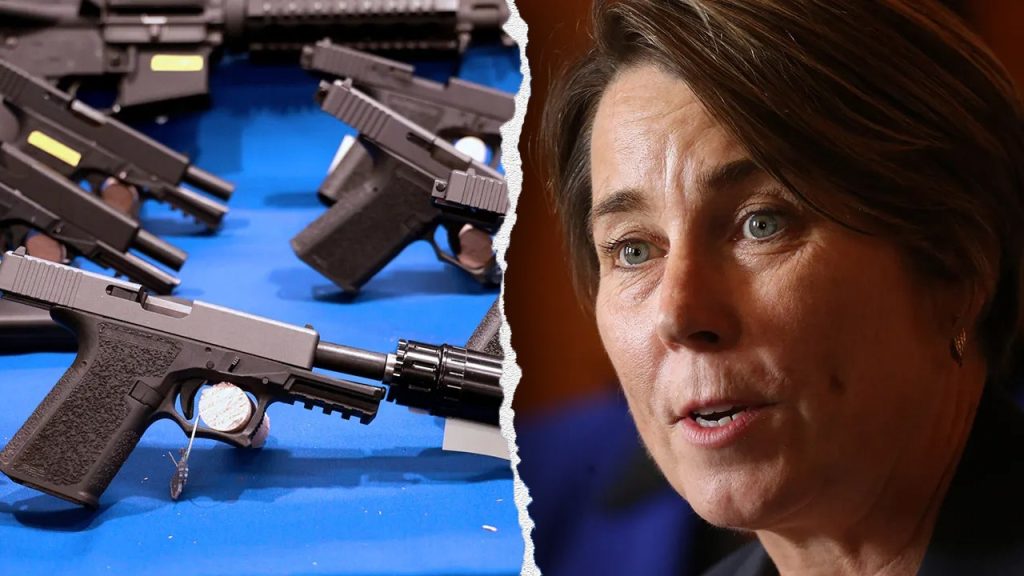Massachusetts Governor Maura Healey implemented new gun legislation that cracks down on unserialized “ghost guns,” bump stocks, trigger cranks, and requires gun license applicants to demonstrate basic safety principles and complete live-fire training. The law, approved by state lawmakers in July, is one of the toughest in the nation and was expected to go into effect later in the month. Despite efforts by gun rights advocates to gather signatures to suspend the law before it took effect, Healey decided to put it into effect immediately to prevent any temporary suspension. The law also expands the state’s “red flag” law, allowing for the temporary confiscation of firearms from individuals deemed a threat.
The new law is designed to enhance gun safety by banning ghost guns, strengthening Extreme Risk Protection Orders, and funding violence prevention programs. Gun rights advocates have criticized the law as a historic attack on civil rights, arguing that it imposes unnecessary barriers on law-abiding citizens who want to own guns. They have sought to suspend the law and place a referendum on the ballot in 2026 to repeal the measure. The law was enacted in response to the Supreme Court’s Bruen decision, affirming citizens’ right to carry firearms in public for self-defense. Gun rights advocates have filed a federal lawsuit challenging the constitutionality of the Massachusetts law, characterizing it as burdensome and imposing sweeping arms bans.
Healey’s implementation of the gun reform law makes it unlawful for non-law enforcement individuals to carry guns at schools, polling locations, and government buildings. The law also requires gun license applicants to demonstrate safety knowledge, provides local licensing authorities with mental health information, and allows district attorneys to prosecute those who shoot at or near homes. It expands the definition of assault weapons and bans the possession, transfer, or sale of assault-style firearms or large-capacity feeding devices. The law is seen as a significant step towards improving gun safety and reducing the risks associated with firearm ownership.
Gun rights advocates have expressed concerns about the implications of the new law, arguing that it infringes on civil liberties and places undue restrictions on law-abiding gun owners. They have sought to challenge the law through legal means, including collecting signatures to suspend it and filing a federal lawsuit to contest its constitutionality. The implementation of the law by Governor Healey underscores the ongoing debate surrounding gun control measures and the balance between public safety and individual rights. Despite opposition from gun rights advocates, supporters of the law believe it is a necessary step to address gun violence and promote responsible gun ownership.
The Massachusetts gun reform law reflects the state’s commitment to enacting stringent gun control measures in response to growing concerns about gun violence and public safety. By expanding existing laws, banning certain types of firearms, and imposing stricter licensing requirements, the state aims to reduce the risks associated with gun ownership and improve overall safety. While the law has faced criticism from gun rights advocates and legal challenges, Governor Healey’s decision to implement it immediately underscores the urgency of addressing gun violence and protecting communities. The ongoing debate surrounding gun control and individual rights is likely to continue as states grapple with finding effective solutions to prevent gun-related tragedies.













